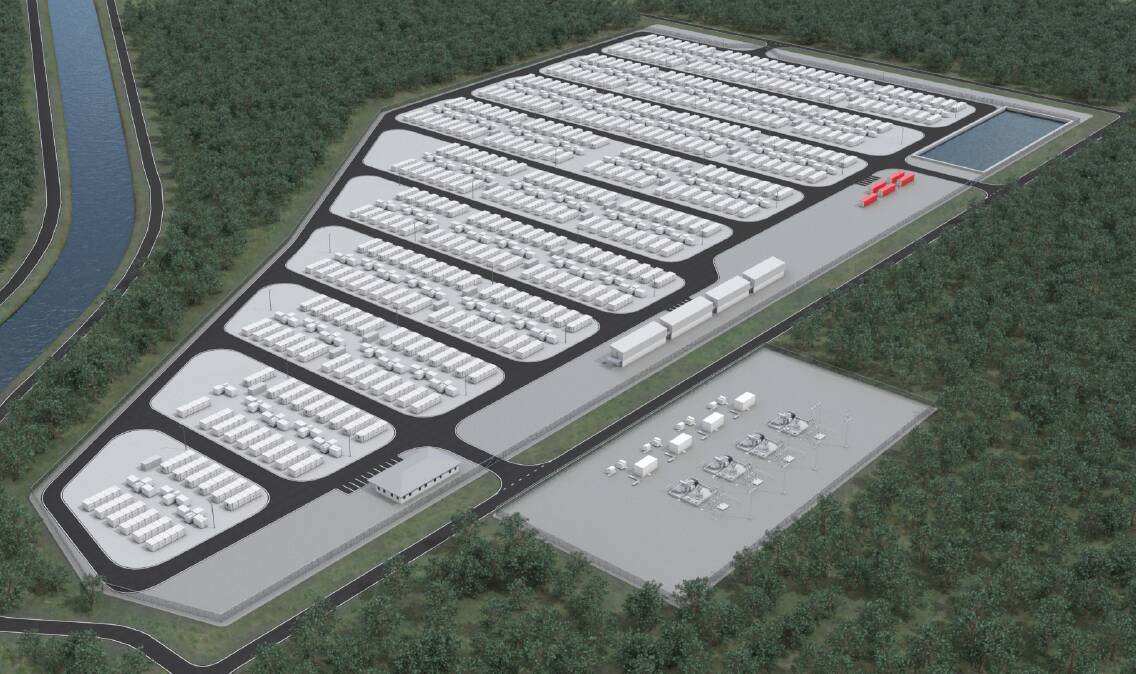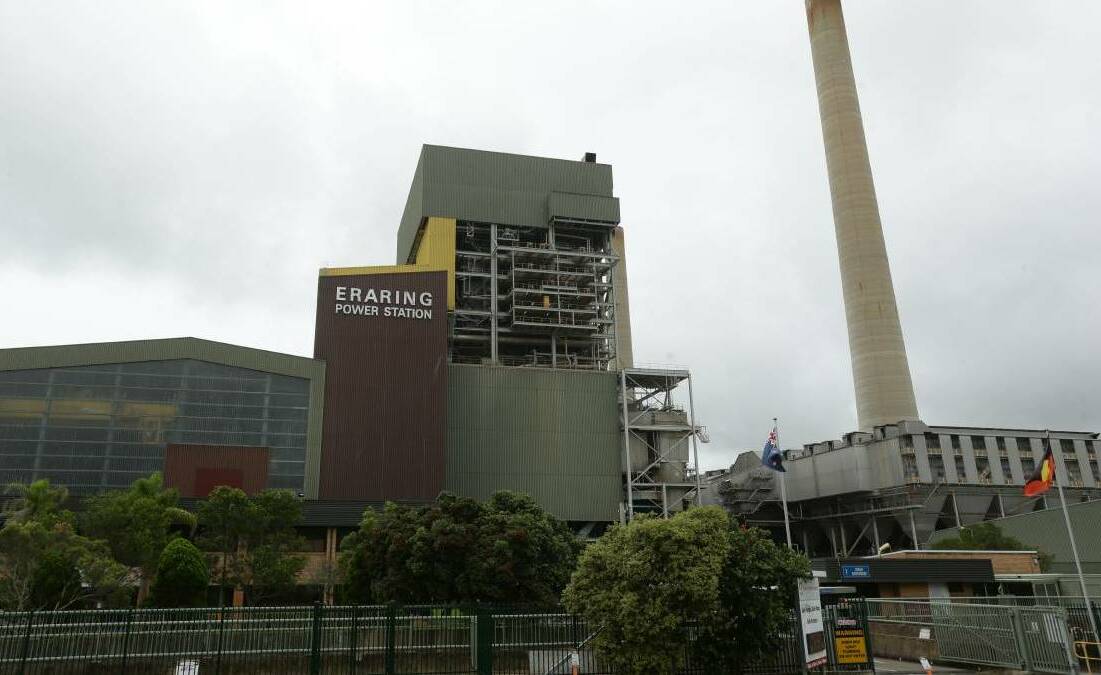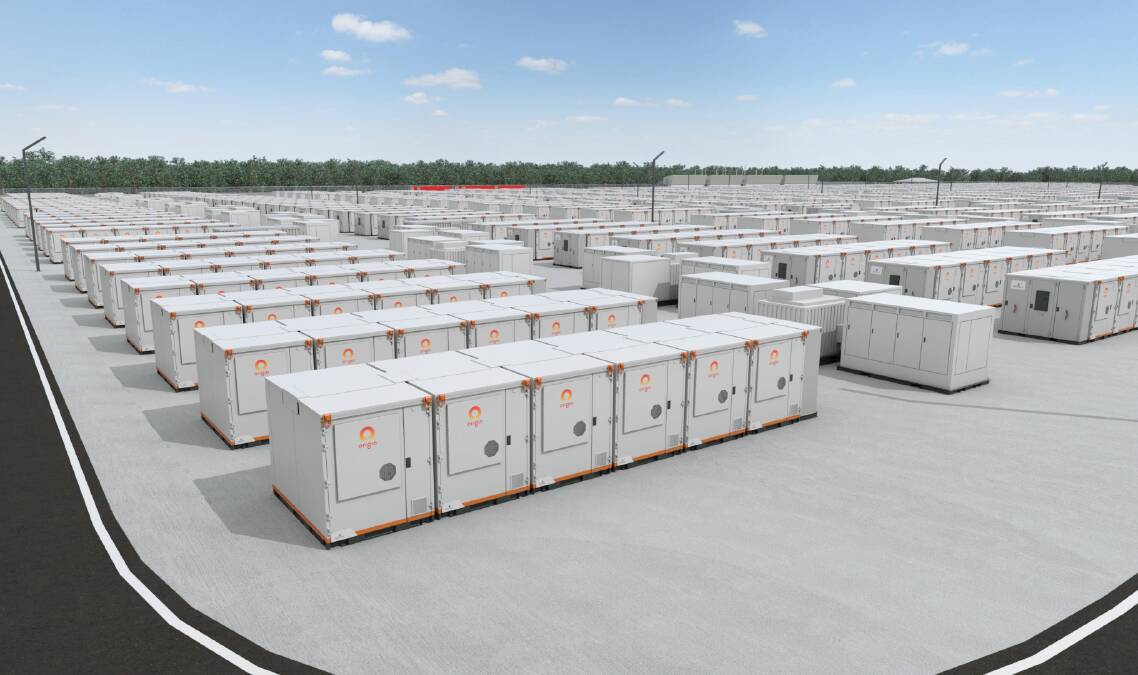
Origin Energy has committed to building a $600 million, 460 megawatt battery on the site of Eraring Power Station.
The battery will play a critical role in stabilising the energy grid following the power station's closure, which could occur as early as 2025.
The company made a Final Investment Decision on the first phase of the project on Thursday, with on-site works due to commence in coming weeks.
Stage one will involve the construction of a 460 megawatt battery storage system with a dispatch duration of two hours. It is anticipated the battery come online in the final quarter of 2025.
Origin has the option to increase the battery to 700 megawatt and four hours dispatch duration in the future.
"Approval of the Eraring battery is an important milestone for Origin and another significant step in our strategy to lead the energy transition and accelerate renewable energy and storage in our portfolio," Origin chief executive Frank Calabria said.
"We are pleased to make this significant capital investment in Origin's first major battery project to support the growth in renewable energy that's occurring across the National Energy Market, together with the expansion of our own portfolio of renewable energy developments."
The Eraring battery project received initial planning approval from the NSW Department of Planning and Environment in May 2022. It will complement the 850 megawatt Waratah battery, which is being built on the site of the former Munmorah power station.
AGL is also developing grid-scale batteries at Liddell and Tomago.

"Development of the Eraring battery is a key next step as the company looks to transform the Eraring site for the future, given our intention to exit coal-fired generation by as early as August 2025," Origin's head of energy supply and operations, Greg Jarvis said.
"We are grateful for the strong support Origin has received from the local community and other stakeholders, and we look forward to working with our key contractors to deliver the Eraring battery safely and expeditiously, consistent with the conditions of approval granted by the NSW Government."
The project will not be affected by the pending acquisition of Origin Energy by Brookfield Asset Management.
Brookfield has pledged to build 14 gigawatts of new renewable and storage generation in Australia over the next decade. It also said it would ensure there was enough replacement clean energy capacity in the grid before closing the coal-fired generator.
The Australian Energy Market Operator said recently it was confident about the power supply outlook through to 2025.
"The notification of Liddell's retirement has allowed the market to respond, with NSW forecast to meet reliability measures until at least 2025," AEMO executive general manager of system design Merryn York said.
"NSW has a strong pipeline of proposed generation and storage projects, totalling more than three times today's generation capacity, as well as essential transmission projects. Delivering these investments to schedule will offset planned generation retirements, such as the Eraring power station."
Premier Chris Minns said the government had received assurances by the Australian Energy Market Operator and NSW Energy Department that the closure of Liddell next week would not affect supply.

"The closure of Liddell has been long in the works and its redundancy provisions have been put in place to ensure that the lights stay on," Mr Minns said.
But he acknowledged the state faced challenges down the track, including the potential closure of the Eraring power station, which provides roughly a quarter of NSW's fossil fuel-based energy.
He told the Herald recently that he believed the plant should keep running into the foreseeable future to ensure energy security.
"My view is that, while we're after a good environmental outcome, going into brownouts and blackouts in NSW will do more to damage to the progress of those outcomes than a considered withdrawal with sufficient dispatchable baseload power produced by renewables -that's what we want but we are not there yet," he said.
Mr Piper said his preference would be for the state or federal government to enter into a commercial arrangement to keep Eraring going as long as was needed rather than have the state government buy it back.
To see more stories and read today's paper download the Newcastle Herald news app here.






